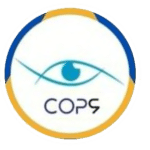Frequently asked questions (FAQ)

Frequently asked questions
Frequently asked questions, or FAQ, provide answers to the most frequently asked questions.
Got a question? We’re here to help! If you can’t find your question here, write to us on our Contact Page.
Laser eye surgery is sometimes necessary for certain eye conditions such as cataracts, glaucoma, and peripheral retinal damage It also acts as a preventive treatment for retinal detachment.
Secondary cataract, open or closed angle glaucoma, retinal tear… Dr. Stéphanie Zwillinger chooses the appropriate laser treatment depending on the pathology to be treated. Dr Stéphanie Zwillinger will take in consideration your needs and will adapt your laser eye treatment to your ocular pathology.
The different types of laser :
- Argon
- Yag
- Selecta (SLT)
For optimal safety the ophthalmic surgery is performed in a clinic, with a medical and paramedical team. The operation is usually performed under local anaesthetic for the more benign procedures. General anaesthetic is used in the treatment for children and in cases of severe traumatic injuries
The ophthalmic surgeon can perform several types of surgery, depending on the pathology to be treated. Cataract surgery will replace the opaque lens with an artificial lens. Glaucoma surgery is used to lower intraocular pressure. Refractive surgery corrects refractive errors in the eye, such as keratoplasty, keratotomy or presbyopia inversion. One can also find corneal surgery. For example, vitreoretinal surgery to correct retinal detachment. Finally, eye muscle surgery will correct vision defects such as strabismus. In all cases, Dr Stéphanie Zwillinger will answer all your questions and put into place the most appropriate surgery adapted to your needs.
- Treatment of glaucoma (view, download pdf )
- Treatment of cataract ( view, download pdf )
Ophthalmic surgeon Dr Stephanie Zwillinger performs non-invasive functional explorations. These additional examinations make it possible to detect and monitor certain eye diseases such as glaucoma, cataracts and ARMD. ( Age-Related Macular Degeneration).
Depending on the disorders being investigated and the possible eye diseases to be detected, Dr. Stéphanie Zwillinger performs various examinations if necessary, including:
- Optical coherence tomography: this cross-sectional X-ray of the retina is used to check the condition of the retina and of glaucoma.
- Automated visual field or Goldmann: used to monitor glaucoma.
- Corneal pachymetry: this determines the thickness of the cornea, this is important information for monitoring certain diseases, such as glaucoma.
Once these examinations have been carried out at the practice using the appropriate machines, the results will be given to you and explained by Dr Stéphanie Zwillinger.
- OCT (optical coherence tomography)
- Biometry
- Visual Field
- Pachymetry
- Ocular tension curves
- Examination of the Iridocorneal angle
- retinal photography
- Retinomax
- Orthoptic check-up results
Dr. Stéphanie Zwillinger works with an orthoptist who performs a pre-consultation. Firstly, they will ask you about your medical and family history. Then they will check your visual acuity, with a trial of corrective lenses if necessary. Dr. Stéphanie Zwillinger then performs the ophthalmological consultation, which includes the measurement of the intraocular pressure and the anatomical examination of your eye. A paediatric consultation is not at all like a consultation for an adult. It is also a privileged moment for the patient and doctor to meet. This type of consultation takes place in three stages, with an orthoptic examination and a cycloplegia.
Additional tests may be carried out, either during the initial consultation or at a later stage. Examinations of binocular vision, colour vision, the back of the eye or the visual field… These allow the detection of eye diseases. As a specialist in glaucoma, cataract, and paediatric ophthalmology, Dr. Zwillinger orientates the examinations based on this specific research, and taking into account the history, and the age of the patient. Each consultation ends with the doctor’s recommendations, the preparation of a prescription if necessary and advice for your daily routine.
